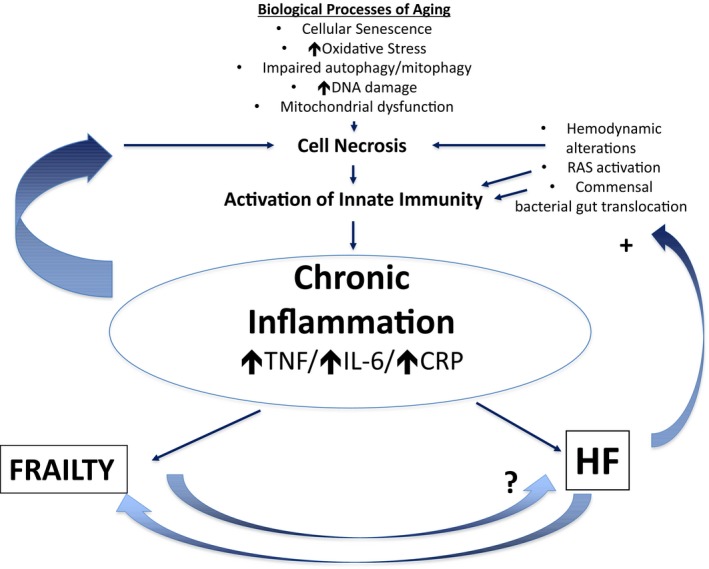Figure 1.

Possible inflammatory pathophysiological link between frailty and HF processes that occur with aging (e.g., cellular senescence, increased oxidative stress, reduced autophagy or mitophagy, increased DNA damage, or mitochondrial dysfunction) accompany both frailty and HF. These processes may disrupt cellular homeostasis and lead to cell death. Cell death activates the innate immune system to induce inflammation manifest as circulating inflammatory cytokines. Subsequent inflammation may then exacerbate the cellular processes mentioned above to perpetuate cell death, in a positive feedback loop. HF may also exacerbate chronic inflammation independently of the above processes, by hemodynamic compromise, activation of the renin–angiotensin system, and translocation of gut bacterial commensals into the systemic circulation. HF likely induces frailty symptoms, but it is less clear whether frailty predisposes to HF.
